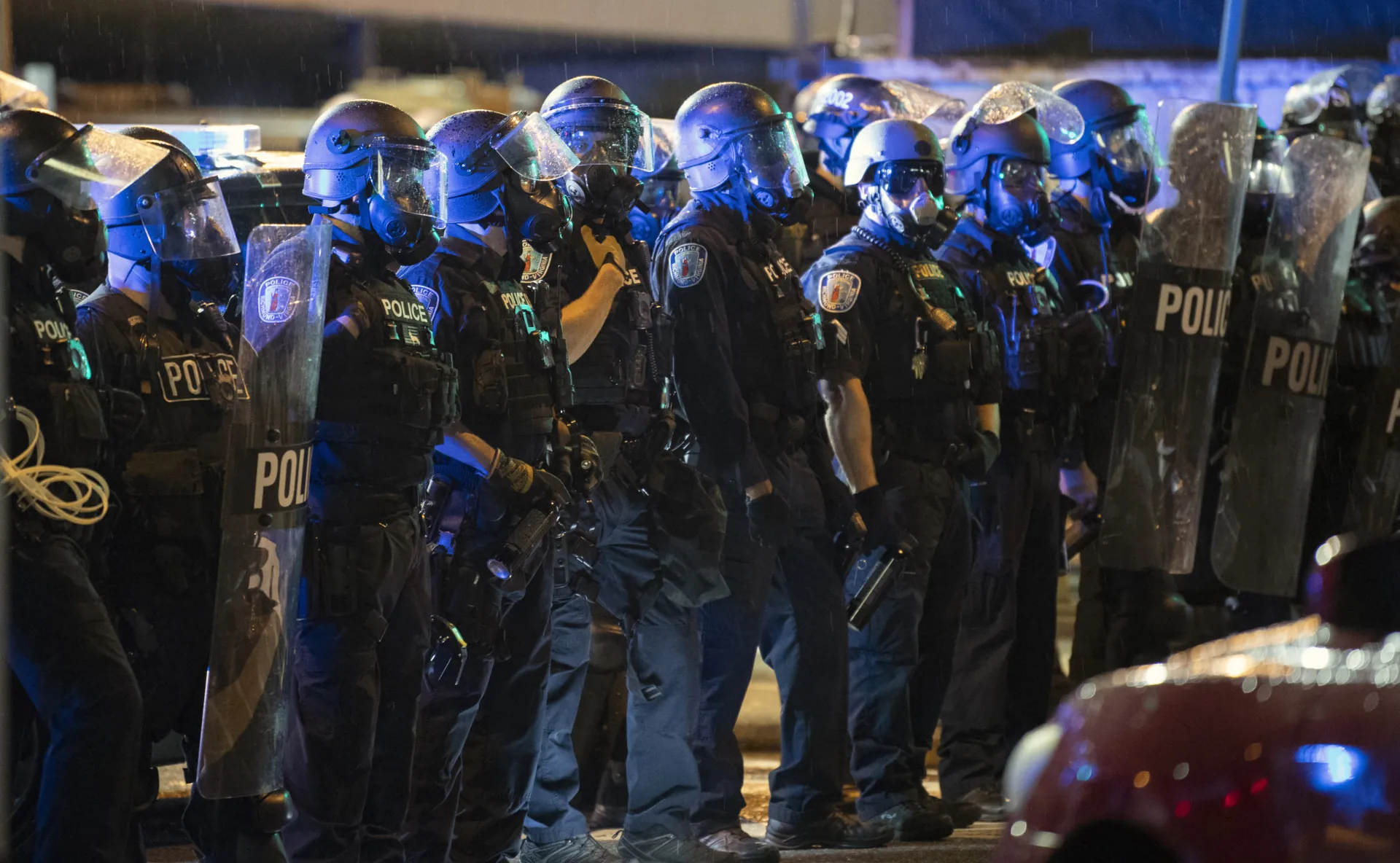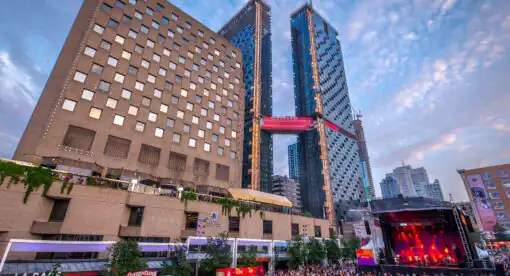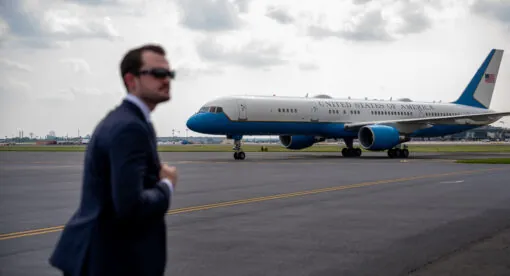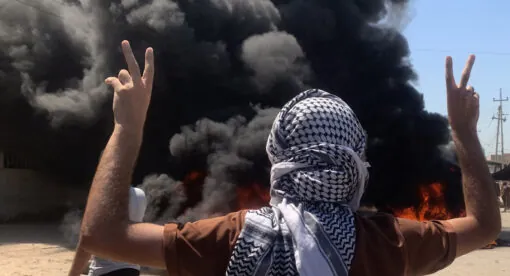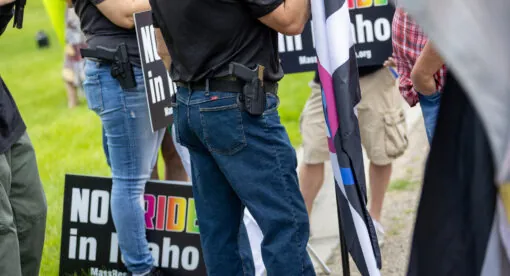The increasing militarization of U.S. police forces is a result of both internal and external influences, and it has affected how the United States has approached security challenges domestically and abroad.
The current system of policing in the United States has failed to protect its marginalized communities, instead allowing for the continued oppression of vulnerable minority groups. Recent protests and scrutiny over systematized racism in American policing should prompt the country to reconsider these practices in both a domestic context and a global one. U.S. policing trends are interconnected with international trends; as police forces have become increasingly militarized, the United States has both imported and exported training and tactics from abroad. How it will respond to calls for systemic change will signal to the international community, including states in the Middle East, how to respond to similar calls within their own domestic populations.
Militarization of U.S. Police Forces
The development of the police system in the United States has been linked to military practices throughout history, drawing inspiration from colonialist methods designed to manage populations under foreign rule. Seminal in the creation of the modern police structure was the U.S. engagement in the Philippines after the Spanish-American war in the late 1800s. Officers who had served in the Philippines after returning to the United States were tasked with establishing police departments in major cities. Most notable among these officers is August Vollmer, considered the father of the modern police organization, who first served as a military policeman in the Philippines and subsequently became the first police chief of Berkeley, California. Similarly, police in Pennsylvania were modeled after the occupation force in the Philippines as an “all-white, all-‘native’’’ organization designed to control immigrant communities.
These dynamics increased with the moves to professionalize policing in the 1950s. Efforts were aimed at combating corruption and increasing supervision of the police, but they instead militarized police practices and in turn increased police repression. As social conditions changed in the country, so did the populations that police identified as threats: Throughout history, police have continuously targeted Black communities, and their targeting of different immigrant communities has fluctuated but most infamously included the internment of Japanese-Americans in camps during World War II.
The increasing militarization of police forces has affected how the United States has approached domestic challenges. President Richard Nixon announced a war on drugs in 1971, which overwhelmingly targeted Black communities. Ten years later, the U.S. Congress passed the 1981 Military Cooperation with Civilian Law Enforcement Agencies Act, allowing the U.S. military to collaborate with domestic and foreign law enforcement. One striking moment of military strategies coming home was when the Philadelphia police used military-grade explosives to conduct an aerial bombing of a house belonging to the Black liberation group MOVE in 1985, killing 11. The 1989 National Defense Authorization Act allowed for the transfer of military equipment to police forces for counter-drug operations. The U.S. Congress made this process permanent in 1996 as the “1033 program,” which has further facilitated the transfer of surplus equipment from the Department of Defense to local police departments and requires that the equipment given to police departments be used within the year. The program attracted widespread media attention when police forces took to the streets of Ferguson, Missouri, in 2014 with military equipment.
Militarization of Police as a U.S. Export
The attacks of Sept. 11, 2001, led U.S. leadership to declare a global war on terrorism, subsequently increasing the militarization of police across the globe. Indeed the line between civilian police and armed forces in combating terrorism has become blurred and thin, both at home and overseas. Domestically, the attacks led to the establishment of the Department of Homeland Security and a renewed focus on minority communities along religious lines, with increased surveillance of Muslim communities. Similar dynamics proliferated in other countries, as the prioritization of counterterrorism efforts led to an increased militarization of police in countries in the greater Middle East region. The U.S. military, upon its invasion in Afghanistan and Iraq, began to undertake training of Iraqi and Afghani police forces, co-opting both into counterinsurgency measures aligned with U.S. foreign policy objectives in the country with limited ability to respond to local civilian needs. Additionally, foreign aid, development programs, and research on the region were subsumed into counterterrorism priorities.
Systems of Exchange among Middle East Partners
The United States has not acted in a vacuum in promoting a militarized approach to policing. Beginning in the 1990s, the country has turned to Israel for training due to its experience in dealing with terrorist threats and attacks. Those critical of U.S. police brutality have concerns about how Israel’s history of human rights abuses extend to the U.S.-Israeli exchange of policing practices. U.S. police officials have traveled to Israel for training, funded by both the U.S. government and private sources, and Israeli trainers have provided law enforcement instruction in the United States. There is evidence that the New York Police Department’s surveillance of Muslim communities was inspired by Israeli tactics. The exchange goes both ways: Israel passed a stop-and-frisk law in 2016 similar to the controversial one in the United States that was used notably in New York throughout the 2000s.
The United States has also partnered with Arab governments in the Middle East, especially with regards to the controversial extraordinary rendition program following the Sept. 11 attacks. Out of the 54 countries identified as having engaged with Washington on this practice, 11 are in the Middle East, and the most prominent sites for interrogation were Egypt, Jordan, Morocco, and Syria, all of which are known to have histories of human rights violations and torture.
Current Impact on the Middle East
Individuals and communities oppressed by these policing tactics have been uniting across borders over shared issues and concerns. Calls against systemic racism, post-colonial continuation of subjugation, and state and police violence against citizens are resonating with populations around the world, particularly in the Middle East. There has been historic exchange between the struggle for justice and human rights between Black Americans and Palestinians: Since the Black Lives Matter movement began in 2013, delegations from Black Lives Matter, Dream Defenders, and Ferguson have visited areas of occupied Palestine and Israel.
Most recently, the past weeks have seen activist communities across the Middle East respond to and internalize calls against state violence and racism in their own communities. A mural of George Floyd, whose May 25 death at the hands of Minneapolis police sparked the current protests, is painted on the remains of a shelled building in Idlib, Syria. The same week Floyd was killed, a Palestinian man with autism was shot and killed by Israeli security forces in Jerusalem after he did not understand their orders, causing protests around Israel and occupied Palestine. Renewed widespread attention to historic regional issues such as anti-Black racism and systems of oppression such as the caste system have spread across the wider Middle East and Asia.
Recommendations
The calls to transform the U.S. policing system represent a moment of example-setting. The current situation calls for a reassessment of domestic policing practices and imports from colonialist practices, as well as its role in the militarization of police and security forces around the world.
– The United States needs to reform the social contract between its government and police and the communities they are supposed to be serving and protecting. This should be done by following and implementing recommendations being articulated by Black communities and other vulnerable minority groups. This must not only be done for the establishment of equality domestically but also to set an example internationally of being willing to reform domestic dynamics.
– The United States should use this opportunity to work with its international partners toward a global endeavor, aimed at improving policing and criminal justice systems. Floyd’s family has moved to bring the case of his death to the United Nations, calling for the international community’s support for systemic police reform. Should the United States pursue this through international bodies, it will show a willingness to reform its own systems, allowing for legitimacy to be restored in its role in the global community while reinforcing international norms and values enshrined in the United Nations charter.
– The United States should reconsider partnerships with states that practice military-style policing that targets minority communities and violates human rights. But this will only work if Washington first gets its own house in order. Depending on how quickly it can shift gears domestically, the United States can pave the way towards reforms internationally through the training program it offers to security agencies around the world. Washington will engage in reforms domestically because the status quo is in conflict with its democratic ethos. Getting authoritarian countries to follow its lead has always been much harder. A major overhaul of its own domestic policing systems, however, can allow the United States to lead a global campaign and press upon even autocracies that brutality against their own people undermines their national security and stability. A U.S. inability to make meaningful reforms could result in a serious decline of American leadership in the international arena. Thus, Washington needs to improve its own law enforcement systems in order to compel autocratic regimes to desist from brutality against their own people.
The current moment is critical for the United States to reform policing practices both internally and internationally. A full re-conceptualization of the components of policing and the development of programming sensitive to the negative aspects of inappropriate militarization can provide a pathway for the country to rebuild its programming both domestically and abroad in this area. A willingness to engage with activists and leaders from marginalized communities and international bodies, and a public acknowledgement and rectification of past and present problematic partnerships, will allow for positive change both domestically and in Washington’s engagements in the international community.
Stella Peisch is an independent consultant and researcher based in the Middle East. Peisch’s research focuses on conflict analysis and post-conflict dynamics in the Middle East, memorialization and politicization of violent conflict, and on issues of enforced disappearances and mass killings. She graduated with her MSc in international development and humanitarian emergencies at the London School of Economics and Political Science.
The views expressed in this article are those of the author and not an official policy or position of the Newlines Institute.

